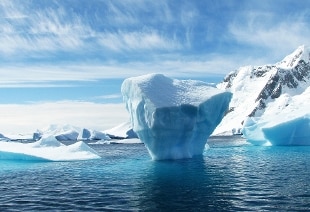Share
November 04, 2019The Australian, European and European Union-led attempt to declare a protected marine park of a million square kilometers east of Antarctica is back on track. At the meeting of the commission for the conservation of the living marine resources of the Antarctic (Ccamlr), which includes 25 countries including Italy, in addition to the European Union, the unanimous vote required by its constitution was again missed.It was hoped that at the annual meeting, which was held in recent days in Hobart in Tasmania, the declaration aimed at preserving biodiversity and helping to mitigate the impacts of climate change was finally approved. The East Antarctic Marine Park would have protected three distinct areas, covering crucial habitats and feeding grounds for penguins, seals, whales and seabirds.
For the eighth time, however, the proposal was rejected, with China and Russia, which conduct industrial fishing in the southern ocean, to still vote against.
In the meeting, however, agreements were reached to adopt a new plan to monitor krill, a critical food source for many Antarctic species, while an important group in the krill fishing sector agreed to extend the self-imposed restrictions on fishing in certain areas lasted the periods of nesting and reproduction of penguins.
The commission also imposed a ban on fishing vessels to disperse plastic, fuel or lubricants into the sea in the entire area of 35.7 million square kilometers covered by the agreement, equal to about 10% of the world's oceans.
The waters surrounding Antarctica are among the most pristine in the world, but they are also among the most vulnerable and the struggle over their destiny has been going on for some time.
More than 10,000 species live in the Antarctic Ocean, including most of the world's penguins, whales, seabirds, a particular type of squid and cod which are the main target of fishing vessels operating in this region.
The southern ocean is also considered an essential area for scientific research both for the study of the functioning of intact marine ecosystems, and for determining the effects of global climate change.

